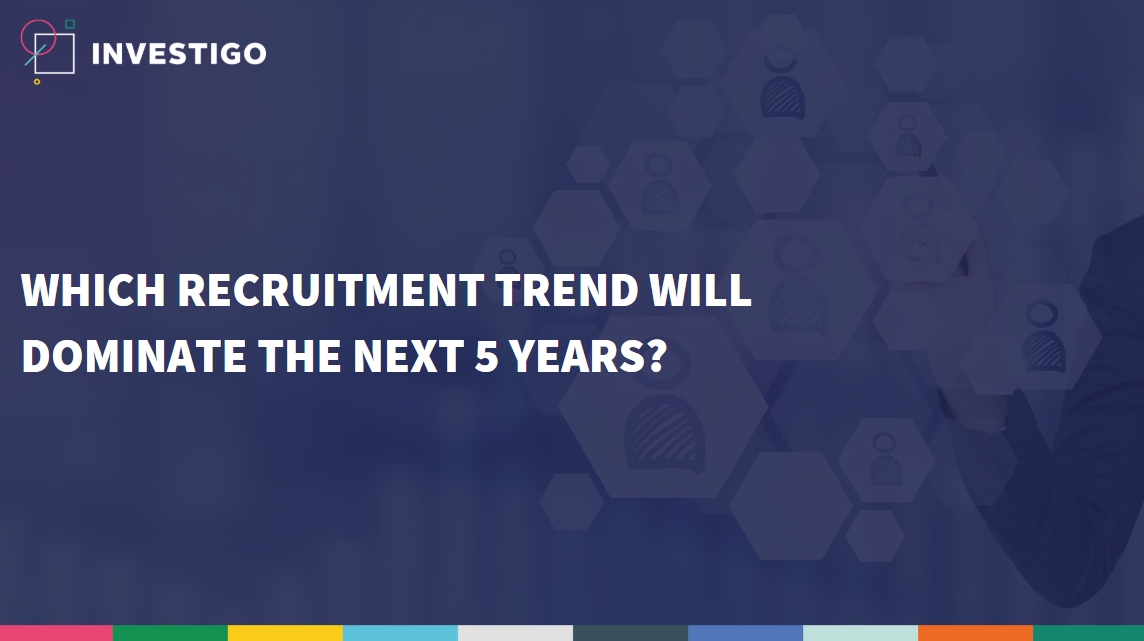
Which recruitment trend will dominate the next 5 years? Here’s what the industry thinks
The recruitment landscape is evolving at record speed. Shifting candidate expectations, rapid technological advancements, and new ways of working have made hiring more strategic, more data-driven, and increasingly candidate-centric.
But with so many emerging trends shaping the future of work, one key question stands out:
Which recruitment trend will define the next five years?
We put the question to our audience - and here’s how the poll results broke down:
AI and automation in hiring – 62%
Remote work as the norm – 15%
Referrals and networking – 14%
Data-driven hiring decisions – 9%
Let’s explore what each of these trends means, why it matters, and how it could influence the future of talent acquisition.
AI and Automation in hiring (62%)
It’s no surprise that AI and automation came out on top. These technologies are already reshaping the hiring process, and their influence is only set to grow.
AI-powered tools are transforming everything from resume screening and interview scheduling to chatbot-driven engagement and predictive analytics. By streamlining repetitive tasks, they allow recruiters to focus on higher-value work like building relationships and improving the candidate experience.
Over the next five years, we can expect even deeper integration of AI into applicant tracking systems, skills assessments, and workforce planning. Crucially, automation isn’t about replacing recruiters it’s about empowering them to make smarter, faster decisions.
Remote work as the norm (15%)
While remote work didn’t top the poll, it remains a transformative force in recruitment.
The widespread shift to remote and hybrid models has expanded talent pools beyond geographic boundaries. Companies can now access global talent like never before but they’re also competing in a much broader, more dynamic market.
As remote work cements itself as a long-term standard rather than a temporary trend, hiring strategies must evolve accordingly. That includes offering flexible work policies, refining virtual onboarding, and cultivating strong digital-first cultures to attract and retain top talent in a distributed environment.
Referrals and networking (14%)
Referrals and networking may feel like “old school” strategies, but they continue to deliver some of the most reliable hiring outcomes, and they remain crucial in today’s recruitment landscape.
Employee referrals often lead to faster, more cost-effective hires who stay longer and perform better. As organisations double down on culture and engagement, referral programs will become even more valuable. At the same time, networking both in-person and online is regaining importance, offering a more human and trust-based approach to connecting with passive talent.
Platforms like LinkedIn and niche online communities are making these connections more accessible and targeted than ever before.
Data-driven hiring decisions (9%)
Despite receiving the fewest votes, data-driven hiring may be the unsung hero of recruitment innovation and the foundation that supports all the other trends.
From tracking the performance of job ads to measuring diversity goals and cost-per-hire, data is helping recruiters make smarter, more strategic decisions. With the right tools in place, recruitment teams can identify what’s working, uncover bottlenecks, and continuously optimise their processes.
In a competitive landscape, gut instinct isn’t enough, data is the differentiator.
Bringing it all together
While AI and automation are expected to lead the charge, each of these trends plays a vital role in the future of recruitment. The most forward-thinking strategies will be multi-dimensional, blending cutting-edge technology with human insight, cultural intelligence, and flexible approaches to work.
Because recruitment today isn’t just about filling roles, it’s about creating meaningful candidate experiences, building inclusive workplaces, and staying ahead in a rapidly evolving world of work.


